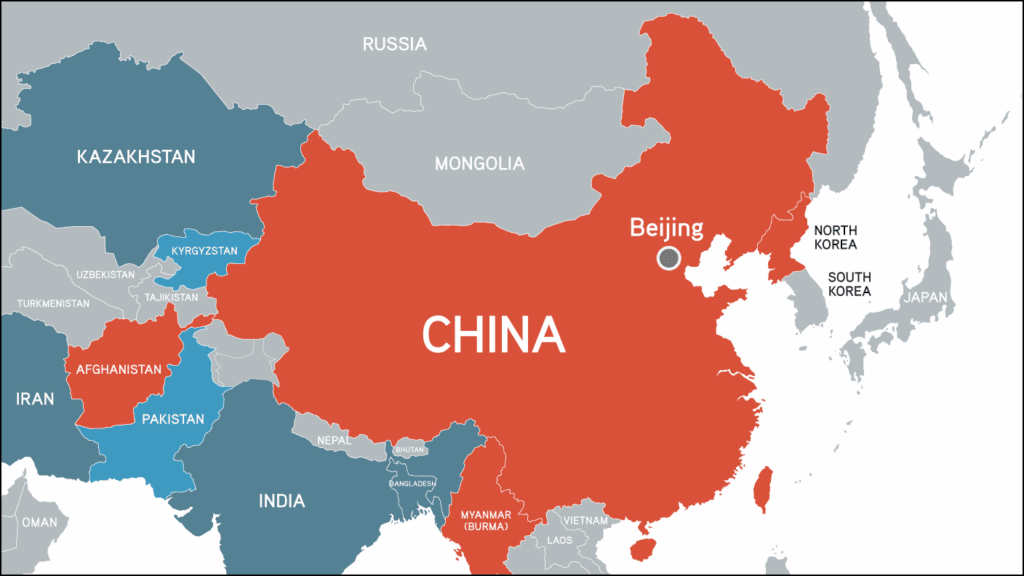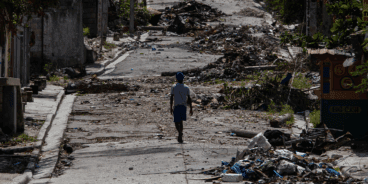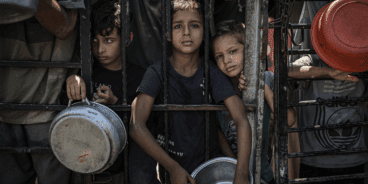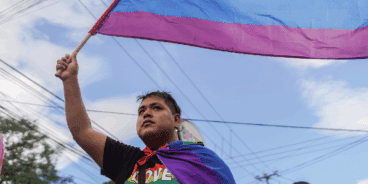China

The Chinese government is committing possible crimes against humanity and genocide by systematically persecuting Uyghurs and other predominantly Muslim and/or Turkic groups. Other religious and ethnic minority groups also face persecution.
BACKGROUND:
China has perpetrated repressive campaigns against religious and ethnic minorities for several decades. In 2016 the Chinese Communist Party (CCP) enacted a policy of “Sinicization” requiring religious groups to align their doctrines, customs and morality with Han Chinese culture and CCP ideology. Under the guise of combating religious extremism, Chinese authorities have imposed numerous discriminatory regulations and repressive campaigns, particularly in the so-called Xinjiang Uyghur Autonomous Region (the Uyghur Region), increasing persecution against the ethnic Uyghur community, Kazakhs, Kyrgyz and other predominantly Muslim and/or Turkic groups. A campaign in the Tibetan Autonomous Region (Tibet) has also repressed Tibetan Buddhists.
Abuses in the Uyghur Region significantly escalated in 2017 when authorities passed the “Regulation on De-extremification,” which imposed severe restrictions on religious freedom and practice, including bans on praying, growing beards or playing Uyghur music. In February 2024 China expanded these regulations, increasing local surveillance and tightening control over religious education and places of worship. In recent years, the crackdown on religion has also expanded beyond the Uyghur Region, with authorities destroying and repurposing mosques and other Islamic venues in Ningxia and Gansu – home to China’s largest Muslim populations outside the Uyghur Region.
Uyghurs and other predominantly Muslim and/or Turkic groups face mass arbitrary detention, often accompanied by widespread rape, sexual abuse and torture, as well as coercive campaigns to reduce birth rates through forced abortions and sterilizations. Over 500,000 Uyghurs have been detained in prisons or detention centers across the Uyghur Region, where at least 380 suspected facilities have been identified. While mass detention camps likely remain in operation, the CCP is increasingly relying on its expansive labor transfer programs, some of which function as involuntary and indefinite forms of internment. In 2023 the government reported 3.2 million labor transfers, including repeat transfers and the forced relocation of tens of thousands of Uyghurs to other provinces.
There are significant risks of forced labor across a variety of sectors and industries, including textiles, technology, solar and automotive, with over 100 international brands implicated in Uyghur forced labor. The governments of Canada, the United Kingdom (UK) and the European Union (EU) have sanctioned Chinese government officials and taken steps to ban goods tied to Uyghur forced labor. The United States (US) government’s Uyghur Forced Labor Prevention Act prevents the import of goods made “in whole or in part” in the Uyghur Region. While these actions have impacted the entry of products from certain industries, there are still enforcement gaps related to complex supply chains and weak regulation, which enable continued exports to the US and Europe.
UN experts have warned that the Chinese government has exponentially increased policies that allow for the forcible separation and assimilation of Uyghur, Tibetan and other minority children to state-run orphanages or boarding. Meanwhile, Uyghurs around the world face intense surveillance and transnational repression.
The parliaments of Belgium, Canada, Czech Republic, the EU, France, Lithuania, the Netherlands and the UK, as well as the US State Department have recognized the situation in the Uyghur Region as constituting genocide and/or crimes against humanity against the Uyghur population and members of other predominantly Muslim and/or Turkic groups.
In August 2022 the Office of the UN High Commissioner for Human Rights (OHCHR) released a report on the human rights crisis in the Uyghur Region, determining that the extent of arbitrary and discriminatory detention may constitute crimes against humanity, with conditions remaining in place for serious human rights violations to continue. In November 2022 the UN Committee on the Elimination of Racial Discrimination (CERD) referred the situation to the Office on Genocide Prevention and the Responsibility to Protect (OSAPG).
RECENT DEVELOPMENTS:
In May 2025 a joint civil society investigation found that China’s coercive transfer of Uyghur workers is more widespread than previously known, with some individuals relocated over 2,000 miles from the Uyghur Region. Separately, other reports highlight a shift in official rhetoric –from terms like “poverty alleviation” and “surplus labor transfer programs” used since 2014 to phrases such as “economic revitalization” and “skills training.” This shift obscures the coercive nature of the programs and makes forced labor increasingly difficult to detect in global supply chains.
In late 2024 the US, delivering a joint statement at the UN Human Rights Council (HRC), and the European Parliament – through an emergency resolution – renewed pressure on China, calling for meaningful engagement with the UN and condemning its treatment of Uyghurs as crimes against humanity.
ANALYSIS:
The widespread and systematic persecution of Uyghurs and other religious and ethnic minorities, including enforced disappearances, forcible transfers, large-scale detention, torture, violations of bodily autonomy – such as forced sterilization and forced organ harvesting – sexual violence and denial of information regarding the fate of persons in state custody, likely constitutes crimes against humanity. The Chinese government also appears to be intentionally perpetrating at least four acts prohibited under Article II of the Genocide Convention: “imposing measures intended to prevent births”; “causing serious bodily or mental harm to members of the group”; “deliberately inflicting on the group conditions of life calculated to bring about its physical destruction in whole or in part”; and “forcibly transferring children of the group to another group.”
China’s systematic destruction of cultural heritage erases the history and identity of Uyghurs and other groups. Alongside expanded detention and labor facilities, increased restrictions on religious practices and the implementation of mass surveillance, have transformed the Uyghur Region into a de facto police state. Many of the systemic violations used in the Uyghur Region – including increased securitization, surveillance, forced separation and assimilation of children and political “re-education” – were developed, and continue, in Tibet. The Chinese government’s “labor transfer” and “vocational training” programs are part of a coercive and exploitative campaign of forced labor aimed at monitoring and indoctrinating Uyghurs and Tibetans, undermining their religious, linguistic and cultural identity.
International condemnation, such as during China’s Universal Periodic Review, helps counter government efforts to evade scrutiny by highlighting the country’s abysmal rights record. In response, the CCP has engaged in reprisals against human rights defenders cooperating with the UN system.
RISK ASSESSMENT:
-
-
- Dangerous rhetoric used by the Chinese government to depict Uyghurs and other predominantly Muslim and/or Turkic groups as terrorists.
-
-
-
- A history of institutionalized discrimination targeting religious and ethnic minorities.
-
-
-
- Widespread or systematic practices or violence against the lives, freedom or physical and moral integrity of a protected group, including policies that indicate an intent to erase and/or forcibly assimilate populations in the Uyghur Region and Tibet.
-
-
-
- Attacks against or the destruction of homes, farms, businesses or other livelihoods of a protected group and/or of their cultural or religious symbols and property.
-
-
-
- Repressive measures and likely atrocity crimes disproportionately perpetrated against women.
-
NECESSARY ACTION:
The government of China should cease ongoing systematic repression of Uyghurs and other religious and ethnic minorities, the practice of forced labor, separating minority children from their families and the deliberate destruction of cultural heritage, as well as repeal the “Regulation on De-extremification.” All recommendations by OHCHR should also be implemented.
Relevant UN experts, including the High Commissioner, should prioritize monitoring the region and provide regular information to member states, including an update to the 2022 report. Member states should work towards formalizing public discussions at the HRC on ongoing atrocity crimes in the Uyghur Region and engage with OSAPG on tangible next steps regarding the CERD referral.
The Organization of Islamic Cooperation, Muslim-majority countries and neighboring states should urge China to cease persecution of Uyghurs and other targeted groups. All member states should strengthen, expand and reinforce regulations to ban all goods tied to forced labor in China.
For more on the Global Centre’s advocacy work on the situation in China, see our China country advocacy page.
Atrocity Alert No. 448: Israel and the Occupied Palestinian Territory, Sudan and China
Related Content

Atrocity Alert No. 452: Haiti, Venezuela and China

Atrocity Alert No. 448: Israel and the Occupied Palestinian Territory, Sudan and China
